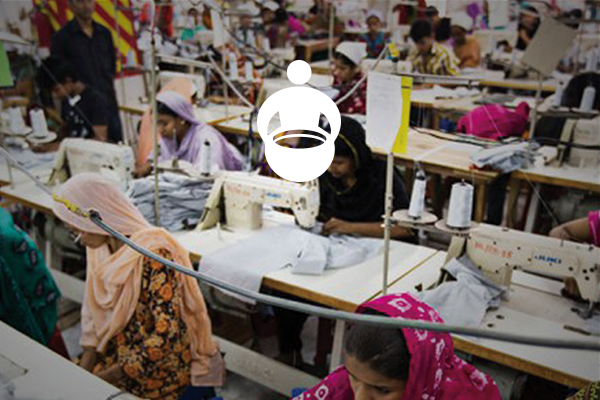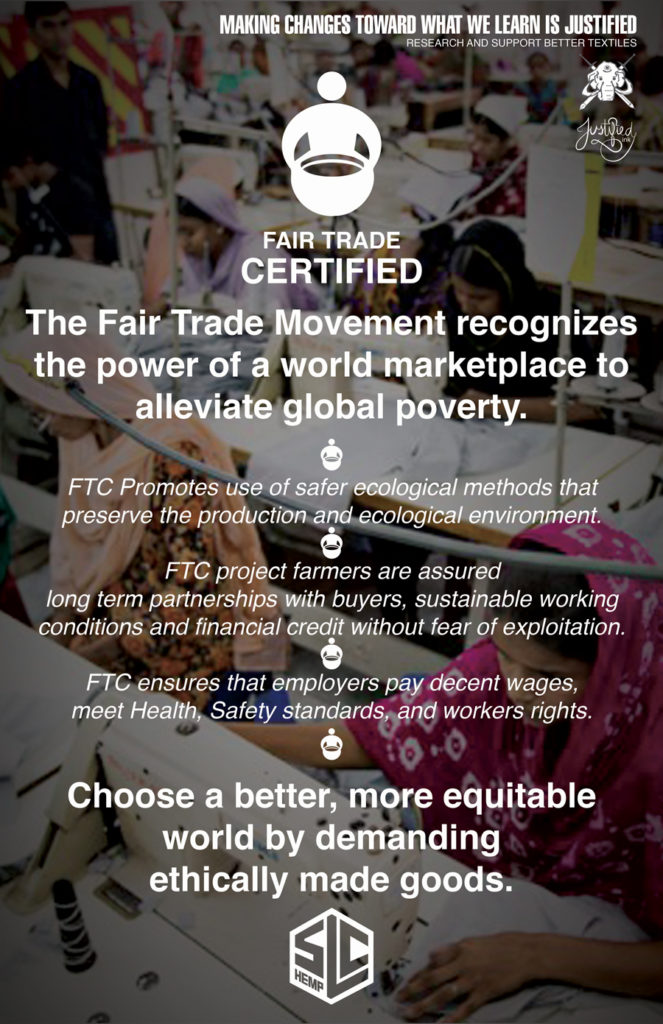
Fair Trade Certified
Justified Textiles: Fair Trade Certified
Seriously, do we even have to really ask for workers to be treated humanely anymore?
In today’s global economic environment, corporations are typically sourcing overseas with a view to drive down their costs and maximize sales and profits. By using their immense bargaining power, they take advantage of weak regulatory rules in developing countries and source low quality products and cheap labor, often with no regard for environmental, cultural and social impact on the local communities. The biggest negative impact is often on the poorest farm and factory workers overseas.
The typical garment mill worker in a developing nation, for instance, is paid exploitative wages, over-worked in unsafe, unhygenic ‘sweatshop’ conditions, intimidated and deprived of basic
human dignity and a decent livelihood. The fair trade movement, rather than attempting to reverse globalization, recognizes the power of a world marketplace to alleviate global poverty. By working to generate awareness and garner support from the ethical consumer, it harnesses purchasing power to cause positive change, creating a win-win situation.
As awareness grows, consumers choose a better, more equitable world by demanding higher quality, ethically made goods and paying a small price premium to assist struggling communities
in producer regions. For the small farmer, a fair trade price for their output covers the costs of sustainable production that promotes quality products. It promotes use of safer ecological methods that preserve the environment instead of degrading it. An additional ‘fair trade premium’ is invested in community projects to help improve the low quality of living. Things such as: entire villages can have safe drinking water, schooling and medical facilities where none existed before. By working within fair trade projects farmers are assured long term partnerships with buyers, sustainable working conditions and financial credit without fear of exploitation. For factory workers, fair trade ensures that employers pay decent wages, ensure health and safety standards, guarantee the right to join trade unions, and provide a conducive work environment.
In 2008, regardless of the worldwide economic recession, the sales of fair trade products grew 22 percent to $4.3 billion, lifting millions of poverty stricken people around the world into a life of dignity. In USA, 57% of consumers surveyed said they were willing to pay at least five percent more for Fair Trade Certified products. A perfect example of our ability to vote with dollars.
Justified Ink believes that Hemp, Bamboo, Organic Cotton, and Fair trade certified products should no longer be considered alternative. Especially when we see proof that they are better on numerous levels than what is accepted as the current standard. The best known products and resources should be the standard as soon as it has been studied, created, and processed to be available as such. Hemp, Bamboo, and Organically grown cotton textiles are now available at reasonable rates. As with all supply and demand, the more we demand, the more that is supplied. The more the supply, the better the pricing can get. The more we support companies who are meeting modern labor standards, the more that other companies have to meet them in order to get your support. The facts speak for themselves, but the choice is up to you. Don’t take my word for it, this is just what I have learned from my research. Check it out for yourself. Making changes toward what we learn is Justified.
The Key Points of Fair Trade Certification

